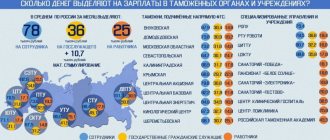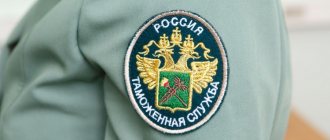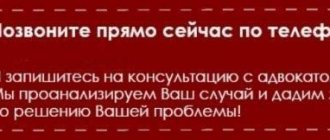PROCEDURE FOR PASSING THE CUSTOMS SERVICE
The Constitution of the Russian Federation (Part 4, Article 32) enshrines one of the fundamental principles, according to which citizens of the Russian Federation have equal access to public service . A similar right is enshrined in Part 2 of Article 21 of the Universal Declaration of Human Rights
Persons working in customs authorities are divided into three main categories:
♦ employees
customs authorities,
♦ civil servants
customs authorities
♦ public sector workers
customs authorities.
Their legal status is different in certain aspects.
They are accepted for service in the customs authorities
♦citizens of the Russian Federation,
♦who have reached the age of 18,
♦capable in their business and moral qualities,
♦level of education
♦state of health
ensure the fulfillment of the functions assigned to the customs authorities.
ENTRY INTO SERVICE is voluntary and is drawn up under the terms of a contract , which can be concluded for a period
♦from 1 year to 10 years,
♦until a citizen reaches the age limit for serving in the customs authorities
.
In addition, those hired may be subject to a probationary period of up to 6 months.
.
A fixed-term employment contract is concluded with a civil servant at customs authorities only in cases strictly stipulated by the Labor Code of the Russian Federation[1]. In all other cases, the employment contract is concluded without specifying its expiration date.
The content of the contract includes mandatory
(necessary) and
additional
(optional)
conditions of service of the employee.
| The following conditions are recognized as mandatory, according to which the head of the customs authority and the citizen must reach an agreement and fix them in the contract: |
| ♦ about the position , which is determined by the official functions of the employee in accordance with the position according to the staffing table of the customs authority and the corresponding job description; |
| ♦ about the place of service . The citizen’s place of service is the customs authority, whose staffing schedule provides for the corresponding position. |
| Additional ( optional ) conditions are those introduced into the contract at the discretion of the parties and specifying the conditions of service or establishing additional guarantees and compensation for the employee and members of his family . |
The parties may stipulate in the contract any other conditions defining their additional mutual rights and obligations, which should not contradict the legislation of the Russian Federation.
If, during the verification process, circumstances are identified that impede service in the customs authorities, the citizen is informed about this in writing within a month from the date of the decision to refuse admission to the service.
Persons are NOT ACCEPTED
♦ incompetent,
♦ persons with limited legal capacity
,
♦ persons who have an unexpunged or outstanding criminal record,
♦ deprived of the right to perform such service for a certain period on the basis of a court decision that has entered into legal force
.
A prerequisite for appointment to a position is taking an oath (no later than 2 months from the date of assignment of the first special rank) (Article 19 of Law No. 114-FZ “On Service in the Customs Authorities of the Russian Federation
):
| “ When exercising the powers of an employee of the customs authority of the Russian Federation, I swear to strictly observe the Constitution of the Russian Federation and the legislation of the Russian Federation, to protect the economic sovereignty and economic security of the Russian Federation, to conscientiously fulfill my official duties .” The procedure for taking the oath is determined by the head of the Federal Customs Service of the Russian Federation. |
Employees and civil servants of customs authorities annually an income declaration to the tax authorities .
Appointment to and dismissal from a position is carried out by order of the head of the relevant customs authority.
Customs officials undergo certification , the purpose of which is an objective assessment of the official and professional activities of the employee, determination of his suitability for the position held, as well as nomination for a state award of the Russian Federation.
Certification is carried out no more than once every two years, but at least once every 4 years
.
Based on the results of the certification, the certification commission can decide on:
| ♦ compliance (non-compliance) of the employee with the position held; |
| ♦ nominating an employee for a state award of the Russian Federation; |
| ♦ nominating an employee for a special senior management rank. |
In this case, this or that decision is of a recommendatory nature for the head of the customs authority. If an employee disagrees with the decision of the head of the customs authority made based on the results of certification, he has the right to appeal it to the head of a higher customs authority or in court.
Certification should contribute to improving the activities of the customs authority in the selection, advanced training and placement of employees, and determining the level of their professional training.
Measures for state protection of customs officials (including customs employees ) are established by Federal Law No. 45-FZ of April 20, 1995 “ On state protection of judges, officials of law enforcement and regulatory authorities
"
.
security measures can be applied (taking into account specific circumstances) (Article 5 45-FZ of April 20, 1995):
| ♦ personal protection, protection of home and property; ♦ issuance of weapons, special personal protective equipment and danger warnings; ♦ placement in a safe place; ♦ ensuring the confidentiality of information about protected persons; ♦ transfer to another job (service), change of place of work (service) or study; ♦ relocation to another place of residence; ♦ replacement of documents, change in appearance. |
In addition, operational investigative activities may be carried out in the manner established by Federal Law No. 144-FZ of August 12, 1995 “ On operational investigative activities in the Russian Federation”
«
II.
In connection with the transfer of customs officers to the federal public service in 2002[2], three categories of officials are distinguished:
♦ Russian customs officials
,
♦ federal civil servants of customs authorities
♦ public sector employees of customs authorities
| Customs officials, i.e. people “ in uniform ” are part of the law enforcement block of the customs system , which includes structural units involved in operational investigations, inquiries, customs investigations, and security forces. The status of customs officials is determined by the Federal Law of 1997 No. 114-FZ “On Service in the Customs Authorities of the Russian Federation” |
| Civil servants of customs authorities carry out their activities in the field of customs clearance and customs control , engage in statistics and analysis , carry out currency control and customs value control , and perform other functions that are not of a law enforcement nature . The status of civil servants in the customs system is determined by Federal Law of 2004 No. 79-FZ “ On the State Civil Service of the Russian Federation ”. |
| Public sector employees: junior inspectors, drivers, support staff . All of them do not directly perform functions related to the implementation of customs activities, but only help in their implementation. |
In the Russian language dictionary, an employee is understood as “ a person employed in various institutions in the service sector.”
»[3].
| CIVIL EMPLOYEES are a social group consisting of individual subjects of law (individuals) who perform certain socially necessary functions on a paid basis and perform the tasks of established and operating government agencies and organizations [4]. |
In administrative law, POSITION is understood as an organizational link connecting a certain structure with an individual - an employee who fills a position and then exercises the powers assigned to the position.
.
The customs service is characterized by a combination of positions in the federal state civil service
and
law enforcement
. They are included in the registers of civil service positions.
The list of positions in customs authorities that can be filled by citizens on a competitive basis, as well as the conditions for holding the competition, are determined by the head of the Federal Customs Service of Russia.
According to Art. 3 of the Law on service in the customs authorities of the Russian Federation
, officials in customs authorities are citizens holding positions in these bodies, who have been assigned
special titles or qualification categories in the prescribed manner.
C SPECIAL TITLES OF CUSTOMS EMPLOYEES
| ♦ junior staff (warrant officer and senior warrant officer of the customs service); |
| ♦ middle command (junior lieutenant, lieutenant, senior lieutenant, captain of the customs service); |
| ♦ senior command staff (major, lieutenant colonel, colonel of the customs service); |
| ♦ senior command staff (major general, lieutenant general, colonel general of the customs service). |
FEDERAL STATE EMPLOYEES of customs authorities are assigned class ranks, and instead of ranks they receive QUALIFICATION RANKS in accordance with the positions they hold.
| ♦ Secretary of State civil service 1st, 2nd, 3rd classes; |
| ♦ state assistant civil service 1st, 2nd, 3rd classes; |
| ♦ State Advisor civil service 1st, 2nd, 3rd classes; |
| ♦ Advisor to the Russian Federation 1st, 2nd, 3rd classes; |
| ♦ valid state Customs Advisor. |
| An official in customs practice is a person |
| — or carrying out control, administrative or procedural functions at the state and customs border of the Russian Federation/CU, |
| - or related to the performance of organizational, administrative or administrative duties associated with international passenger and cargo transportation, as well as postal exchange; |
| - or authorized to move goods not subject to customs control across the border ; |
| - or enjoying customs benefits in accordance with the established procedure , with the exception of foreign citizens who have immunity from criminal, civil, administrative jurisdiction in accordance with current legislation and international agreements[5]. |
A customs official has the POWERS to:
| ♦familiarization with documents defining his rights and obligations, obtaining the necessary information for the performance of official duties; ♦visiting enterprises of all forms of ownership to perform official duties; ♦promotion; ♦pension provision taking into account length of service; ♦conducting an official investigation at his request to refute information discrediting his honor and dignity; ♦the use of physical force, special means, as well as combat hand-held small arms and bladed weapons in the event of suppression of unlawful actions. |
Customs officials have the right to apply
Ø physical strength,
Ø special means,
Ø weapon
Ø use service dogs
in the manner provided for in Art. 26 Federal Law dated November 27, 2010 No. 311-FZ.
The use of physical force, special means and weapons must be preceded by a clearly expressed warning of the intention to use them and, in the case of the use of weapons, warning shots
.
In this case, customs officials MUST :
| 1) provide sufficient time to fulfill their legal requirements, except for those cases when delay in the use of physical force, special means and weapons creates an immediate danger to their life and health, may lead to other grave consequences, in the event of a sudden or armed attack, attack using military equipment, ships and vehicles or in other circumstances when warning in the current situation is inappropriate or impossible; |
| 2) provide first aid to persons who have received bodily injuries and immediately notify the head of the customs authority about the incident, who informs the prosecutor about this no later than 24 hours. |
When using physical force, special means and weapons, depending on the nature and degree of danger of the offense, as well as the degree of counteraction provided, customs officials are obliged to proceed from the fact that the damage caused when eliminating the danger should be minimal.
In the case of the use of physical force, special means and weapons, or the use of service dogs in violation of the established procedure, customs officials bear responsibility in accordance with the legislation of the Russian Federation.
Article 141. Bank guarantee
This is an old version of the document
1. Customs authorities, as security for the payment of customs duties and taxes, accept bank guarantees issued by banks, other credit organizations or issued on behalf of banks, other credit organizations by branches of these banks, other credit organizations included in the Register of Banks, other credit organizations having the right issuance of bank guarantees for the payment of customs duties and taxes, which is maintained by the federal executive body authorized in the field of customs affairs (hereinafter in this chapter - the Register), as well as bank guarantees issued by Vnesheconombank.
2. The provisions of the civil legislation of the Russian Federation and this Federal Law apply to legal relations related to the issuance of a bank guarantee, the submission of claims under a bank guarantee, the fulfillment of obligations by a bank, another credit organization, Vnesheconombank and the termination of a bank guarantee.
3. The bank guarantee is submitted to the customs authority in writing on paper or in the form of an electronic document signed with an enhanced qualified electronic signature of a person who has the right to sign bank guarantees on behalf of the bank, other credit organization, Vnesheconombank.
4. A bank guarantee is accepted by the customs authority if the bank or other credit organization that issued it, or the branch of this bank or the branch of this other credit organization that issued it on behalf of the bank or other credit organization on the day the said bank guarantee was received by the customs authority are included in the Register, provided not exceeding the maximum amount of one bank guarantee and the maximum amount of all simultaneously valid bank guarantees established for the data of the bank, other credit organization, Vnesheconombank.
5. The bank guarantee must be irrevocable, and it must contain information:
1) on the obligations of the payer of customs duties and taxes, the proper fulfillment of which is ensured by a bank guarantee;
2) on the right to an undisputed write-off by the customs authority from a bank, other credit organization, Vnesheconombank of the amount due in the event of failure by this bank, other credit organization, Vnesheconombank to fulfill its obligations under a bank guarantee;
3) on the obligation of a bank, other credit organization, Vnesheconombank to pay a penalty to the customs authority in the amount of 0.1 percent of the amount payable for each calendar day of delay in fulfilling obligations under the bank guarantee;
4) on the condition that the fulfillment of the obligations of a bank, other credit organization, Vnesheconombank under a bank guarantee is the actual receipt of funds to the account of the Federal Treasury and (or) to the account determined by the international treaty of the member states of the Customs Union.
6. The validity period of the submitted bank guarantee cannot exceed 36 months and must be sufficient for the customs authority to timely send a request to the bank, other credit organization, or Vnesheconombank to pay the amount of money under the bank guarantee in the event of failure to fulfill the obligations secured by the bank guarantee.
7. The bank guarantee must be in force on the day of its submission to the customs authority. It is allowed to accept a bank guarantee issued for a new period before it comes into force, provided that the submitted bank guarantee comes into force on the day following the day of expiration of the previously issued (current) bank guarantee and the difference between the day of submission of the new bank guarantee in customs authority and the day of its entry into force does not exceed 15 days. Such a bank guarantee is used after entry into force for the purpose of continuously ensuring the payment of customs duties and taxes.
8. The payer of customs duties and taxes, when choosing a bank guarantee as security for payment of customs duties and taxes, submits the original bank guarantee to the customs authority with a covering letter, except for the case if the bank guarantee is presented in the form of an electronic document signed with an enhanced qualified electronic signature.
9. A bank guarantee may be submitted to the customs authority by the bank, other credit organization, Vnesheconombank that issued it, or by a branch of that bank or a branch of that other credit organization that issued it on behalf of the bank, other credit organization.
10. Along with the bank guarantee, in the form of originals or notarized copies, documents are submitted confirming the relevant powers of the persons who signed the bank guarantee, and a card certified in the prescribed manner with sample signatures of these persons and the seal impression (if there is a seal) of the bank that issued the bank guarantee , another credit organization, Vnesheconombank or those who issued a bank guarantee on behalf of the bank, another credit organization, a branch of this bank, a branch of this other credit organization, or a notarized copy of such a card. If the specified documents were previously submitted to the customs authority or the bank guarantee is presented in the form of an electronic document signed with an enhanced qualified electronic signature, the submission of these documents is not required.
11. The customs authority accepts the received bank guarantee or refuses to accept it within a period not exceeding:
1) five working days from the date of its receipt - for a bank guarantee drawn up in writing on paper;
2) one business day following the day of its receipt - for a bank guarantee issued in the form of an electronic document signed with an enhanced qualified electronic signature.
12. The customs authority refuses to accept a bank guarantee if one of the following grounds exists:
1) failure to receive information in electronic form from a bank, other credit organization, or Vnesheconombank to the federal executive body authorized in the field of customs affairs about the issuance of a bank guarantee in the manner prescribed by parts 24 - 26 of this article;
2) revocation by the Central Bank of the Russian Federation of a bank or other credit organization that issued a bank guarantee, a license to carry out banking operations;
3) signing of a bank guarantee by persons who do not have the appropriate authority;
4) failure to comply with the conditions specified in parts 4 - 10 of this article.
13. If a bank guarantee is accepted, the customs authority, within a period not exceeding two working days from the date of acceptance of the bank guarantee, informs the payer of customs duties and taxes about the execution of a customs receipt for the amount specified in the bank guarantee.
14. In case of refusal to accept a bank guarantee, the customs authority, within the period established by part 11 of this article, informs in writing on paper or in the form of an electronic document signed with an enhanced qualified electronic signature, the payer of customs duties and taxes and the bank that issued the bank guarantee, another credit organization, Vnesheconombank, or a branch of this bank, a branch of this other credit organization that issued a bank guarantee on behalf of the bank, another credit organization, with an indication of the reasons that served as the basis for the refusal.
15. The return of a bank guarantee drawn up in writing on paper is carried out by the customs authority in the event of the customs authority’s refusal to accept the bank guarantee, as well as on the basis of an application from the payer of customs duties and taxes, drawn up in any written form on paper and containing a request for return of the bank guarantee in one of the following cases:
1) the obligation secured by the bank guarantee has been fulfilled in full, has been terminated or has not arisen;
2) instead of a bank guarantee, a new security for payment of customs duties and taxes is provided;
3) the bank guarantee has expired.
16. Instead of returning a bank guarantee, it is permitted that the customs authority send a letter to a bank, another credit organization, Vnesheconombank or a branch of a bank, a branch of another credit organization on the release of the bank, another credit organization, Vnesheconombank from obligations under the bank guarantee in connection with the refusal of the customs authority of its rights under bank guarantee, of which the customs authority notifies the payer of customs duties and taxes in writing on paper no later than five working days from the date of sending such a letter.
17. If a bank guarantee is submitted in the form of an electronic document signed with an enhanced qualified electronic signature, the customs authority, within five working days from the date of full fulfillment or termination of the obligation secured by the bank guarantee, or accepting a new security for the payment of customs duties in return for the bank guarantee, taxes sends a letter in the form of an electronic document signed with an enhanced qualified electronic signature to the bank, other credit organization, Vnesheconombank that issued the bank guarantee, about the release of the bank, other credit organization, Vnesheconombank from obligations under the bank guarantee in connection with the refusal of the customs authority of its rights under the bank guarantee .
18. If a bank guarantee, presented in the form of an electronic document signed with an enhanced qualified electronic signature, was accepted by the customs authority as general security or to secure an obligation that has not yet arisen, the customs authority, on the basis of an application from the payer of customs duties and taxes, drawn up in an arbitrary in writing on paper, sends to the bank, other credit organization, Vnesheconombank that issued the bank guarantee a letter in the form of an electronic document, signed with an enhanced qualified electronic signature, on the release of the bank, other credit organization, Vnesheconombank from obligations under the bank guarantee in connection with the refusal of the customs authority to their rights under the bank guarantee.
19. The customs authority notifies the payer of customs duties and taxes about sending a letter about the release of a bank, other credit organization, Vnesheconombank from obligations under a bank guarantee no later than five working days from the date of sending such a letter.
20. The period for consideration of applications from the payer of customs duties and taxes specified in parts 15 and 18 of this article should not exceed five working days from the date of its receipt by the customs authority. In case of refusal to return a bank guarantee or to a bank, another credit organization, Vnesheconombank or a branch of a bank, a branch of another credit organization, a letter on the release of the bank, another credit organization, Vnesheconombank from obligations under the bank guarantee, the customs authority within the specified period will inform in writing to on paper of the payer of customs duties and taxes about the refusal, indicating the reasons that served as the basis for the refusal.
21. If the Central Bank of the Russian Federation revokes the license to carry out banking operations from the bank or other credit organization that issued the bank guarantee, the payer of customs duties and taxes, whose obligations were secured by the bank guarantee of the specified bank, other credit organization, is obliged no later than one month from the date of revocation of the license submit to the customs authority new security for payment of customs duties and taxes.
22. Upon expiration of the period specified in part 21 of this article, the bank guarantee is terminated and must be returned to the payer of customs duties and taxes in accordance with the procedure established by parts 15 - 19 of this article.
23. The federal executive body authorized in the field of finance, in agreement with the federal executive body authorized in the field of customs affairs, establishes for banks, other credit organizations, Vnesheconombank the maximum amounts of one bank guarantee and the maximum amounts of all simultaneously valid bank guarantees issued one bank or one other credit organization, or Vnesheconombank, for the acceptance of bank guarantees by customs authorities in order to ensure payment of customs duties and taxes.
24. No later than one business day following the day of issuance of the bank guarantee in writing on paper, the bank, other credit organization, Vnesheconombank shall inform electronically the federal executive body authorized in the field of customs affairs about the issuance of the bank guarantee.
25. Transfer by banks, other credit organizations, Vnesheconombank to customs authorities, as well as by customs authorities to banks, other credit organizations, and Vnesheconombank of electronic documents signed with an enhanced qualified electronic signature, and information in electronic form, provided for by this article, is carried out in the manner established by the Central Bank of the Russian Federation in agreement with the federal executive body authorized in the field of customs affairs.
26. The composition and structure of information in electronic form sent by banks and other credit organizations to customs authorities, as well as by customs authorities to banks and other credit organizations provided for by this article, are established by the Central Bank of the Russian Federation in agreement with the federal executive body authorized in field of customs affairs. The composition and structure of information in electronic form sent by Vnesheconombank to customs authorities, as well as by customs authorities to Vnesheconombank, provided for by this article, are established by the federal executive body authorized in the field of customs affairs.
The impact of the COVID-19 pandemic on the work of customs authorities in different countries
Of course, the coronavirus pandemic has left a serious mark not only on the population of states, but also on the economic sphere. In particular, measures taken by states or unions of states also affected the activities of the customs service.
It should be noted that in general, the activities of customs services in all countries of the world have become electronic in nature to the maximum extent possible.
Thus, we can highlight a number of areas in which measures have been taken affecting the activities of the customs service in the context of the COVID-19 pandemic:
1) a ban on the movement of goods;
2) features of the transit of goods and vehicles;
3) the possibility of providing copies of documents used for customs purposes;
4) exemption from payment of import duties or provision of payment benefits.
Establishing a ban on the movement of goods
This area is characterized by the establishment of bans on the movement of goods both by acts of supranational legislation and at the national level. For example, at the level of the Eurasian Economic Union (hereinafter referred to as the EAEU), the Board of the Eurasian Economic Commission (hereinafter referred to as the EEC) adopted Decision No. 41 on March 24, 2020, which establishes a ban on the export from the customs territory of the EAEU of personal protective equipment, protective and disinfectants, medical products, as well as a number of materials valid until September 30, 2020. Also, by Decision No. 42, the EEC introduced a ban on the export of a number of food products outside the EAEU (for example, onions, garlic, rice, buckwheat, ready-made buckwheat food products).
In addition, at the national level, the EAEU member states also introduced restrictions on the export of a number of goods. For example, the Russian Federation introduced a ban on the export of a number of goods from its territory (disposable chemical protective overalls, medical masks, medical gowns, etc.) until June 1, 2020.
Establishing specifics for the transit of goods and vehicles
This direction concerns the implementation of transit transportation of goods. It should be noted that this area is one of the key ones in the economies of many countries, so states are trying to create the most acceptable conditions for maintaining transit potential during a pandemic. In this case, of course, the current epidemiological situation is taken into account. In this block, we believe it is possible to highlight a number of measures that are aimed at maximizing the elimination of contacts between carriers and customs authorities. In the Republic of Belarus, the Government has established a number of restrictions and requirements for drivers performing transit transportation across the territory of the republic. In particular, drivers performing transit transportation are required to leave the territory of the Republic of Belarus along the shortest route no later than the day following the day of entry into its territory, except for the cases established by sub-clause. 1.3 clause 1 of Council of Ministers resolution No. 171.
At the same time, a number of states have completely limited transit traffic through the territory of their states. For example, the Republic of Kazakhstan has prohibited the transit through its territory of foreign citizens and cargo vehicles traveling to third countries that have an entry ban (such countries include Tajikistan and Turkmenistan).
In addition, a number of states have introduced restrictions on the number of cargo vehicles allowed through or set a time interval for the passage of these vehicles. For example, China has reduced the daily allowance for vehicles passing through checkpoints on the border with the Russian Federation “Pogranichny-Suifenhe”, “Kraskino-Hunchun”, “Poltavka-Dongning”, “Turiy Rog-Mishan”. And Kazakhstan has established a time interval from 10.00 to 19.00 for the passage of cargo vehicles in transit at the Aisha-Bibi and Karasu checkpoints.
Possibility of providing copies of documents used for customs purposes
This area concerns the possibility of providing copies of documents used for customs purposes when performing customs operations. For example, the package of measures of the European Union (hereinafter referred to as the EU) provides for the possibility of using scanned copies of accompanying documents during the customs transit procedure. By decision of the EEC Council No. 36, the declarant was given the opportunity to submit to the customs authority an electronic or paper copy of the certificate of origin of the goods, subject to the mandatory subsequent submission of the original of the said certificate no later than 6 months from the date of registration of the declaration for goods. This opportunity is provided until September 30, 2020.
A measure for exemption from payment of import duties or provision of benefits for payment
As a separate area, we can highlight measures to exempt from payment of import customs duties or provide payment benefits. For example, Decision of the EEC Council No. 21 provides for exemption from import customs duties for goods imported to prevent and prevent the spread of coronavirus infection. This decision affects, for example, such goods as personal protective equipment, disinfectants, diagnostic reagents, certain types of equipment and materials. At the same time, in the EU, if there is evidence of serious economic and social difficulties for an entity, customs authorities have the right not to charge interest on the business entity’s debt on customs payments.
In general, it should be noted that all countries have taken measures to create a “green corridor” for the import of goods necessary to prevent and eliminate the consequences of the coronavirus pandemic. Accordingly, customs operations in relation to such goods are carried out by customs authorities as a matter of priority.
How to get a job at customs. Part 2. Technical.
There are 3 categories in the customs authorities: 1) Employees (Federal civil servants) 2) Federal civil servants (FGSS) 3) Workers
Employees
As for employees, the main law regulating the procedure and conditions for their service is Federal Law No. 114-FZ of July 21, 1997 “On Service in the Customs Authorities of the Russian Federation.”
Features of the “employee” status: salaries are usually higher than those of state civil servants, as well as the presence of a number of benefits and benefits not available to civil servants. For example: early retirement; availability of special ranks (lieutenant, captain, etc.); theoretical (at least such) possibility of obtaining housing; payment of travel/flight costs to the vacation destination and back; "slope" from the army.
Disadvantages: irregular work schedule, concluding a contract for a certain period, various restrictions and bans on traveling abroad to a certain list of countries, as well as more stringent health requirements. And you might have to snitch on your colleagues =)
How to get settled?
Surprisingly, some positions do not even require a higher education (for example, security units and some law enforcement positions).
To get into the service, you need to contact the OGSIK of the customs authority (Department of Civil Service and Personnel). They will tell you what package of documents to collect. There are no tests or competitions for this category; the main thing is to pass a military medical commission, the referral for which is issued by the OGSiK.
Plus, for certain positions, passing sports standards. Of course, priority is given to people with higher education. And again, if you need a further career, then higher education is a must. There are no mandatory requirements, but here you can guess that the law enforcement unit is usually a specialization of the law department and law enforcement. RTA graduates are always given priority.
Federal civil servants
The main regulatory document is Federal Law No. 79-FZ of July 27, 2004 “On the State Civil Service of the Russian Federation.”
Instead of a military rank, they have the class rank of a state civil servant (3rd class assistant, 2nd class assistant, 1st class assistant, 3rd class adviser).
Actually, that's all. They have nothing else.
How to get settled?
Everything is more complicated here.
A citizen’s entry into the civil service to fill a civil service position or a civil servant’s replacement of another civil service position is carried out based on the results of a competition.
The competition consists of assessing the professional level of applicants for civil service positions and their compliance with the established qualification requirements for filling civil service positions. The competition is announced by OGSiK of the customs authority and an announcement is posted on the official website of the Regional Customs Administration (RTU)
or on the website https://gossluzhba.gov.ru.
Each position has its own requirements for length of service or area of training (education). Basically, education is at bachelor's level, there are no requirements for experience. But for positions of commanding staff there are such requirements; they must be clarified individually.
The list of documents for admission is posted for the competition. You can learn about the nuances of these documents from the direct OGSIK of the customs authority.
It is worth considering that you will not be able to enter the state civil service if you have certain restrictions.
A citizen cannot be accepted into the civil service, and a civil servant cannot be in the civil service in the event of: 1) he is declared incompetent or partially capable by a court decision that has entered into legal force; 2) his conviction to a punishment that excludes the possibility of performing official duties in a position of state service (civil service), by a court verdict that has entered into legal force, as well as in the case of a criminal record that has not been expunged or expunged in accordance with the procedure established by federal law; 3) refusal to undergo the procedure for obtaining access to information constituting state and other secrets protected by federal law, if the performance of official duties in a civil service position for which a citizen is applying, or in a civil service position being filled by a civil servant involves the use of such information; 4) the presence of a disease that prevents entry into the civil service or its passage and confirmed by the conclusion of a medical organization. The procedure for undergoing medical examination, the list of such diseases and the form of conclusion of the medical organization are established by the federal executive body authorized by the Government of the Russian Federation; 5) close relationship or relationship (parents, spouses, children, brothers, sisters, as well as brothers, sisters, parents, children of spouses and spouses of children) with a civil servant, if filling a civil service position is associated with the direct subordination or control of one of them to another ; 6) renunciation of citizenship of the Russian Federation or acquisition of citizenship of another state; 7) having citizenship of another state (other states), unless otherwise provided by an international treaty of the Russian Federation; submission of false documents or knowingly false information when entering the civil service; 9) failure to provide information established by this Federal Law or provision of knowingly false information about income, property and property-related obligations when entering the civil service; Loss of trust 11) recognition of him as not having completed military service upon conscription, without legal grounds.
2) his conviction to a punishment that excludes the possibility of performing official duties in a position of state service (civil service), by a court verdict that has entered into legal force, as well as in the case of a criminal record that has not been expunged or expunged in accordance with the procedure established by federal law; 3) refusal to undergo the procedure for obtaining access to information constituting state and other secrets protected by federal law, if the performance of official duties in a civil service position for which a citizen is applying, or in a civil service position being filled by a civil servant involves the use of such information; 4) the presence of a disease that prevents entry into the civil service or its passage and confirmed by the conclusion of a medical organization. The procedure for undergoing medical examination, the list of such diseases and the form of conclusion of the medical organization are established by the federal executive body authorized by the Government of the Russian Federation; 5) close relationship or relationship (parents, spouses, children, brothers, sisters, as well as brothers, sisters, parents, children of spouses and spouses of children) with a civil servant, if filling a civil service position is associated with the direct subordination or control of one of them to another ; 6) renunciation of citizenship of the Russian Federation or acquisition of citizenship of another state; 7) having citizenship of another state (other states), unless otherwise provided by an international treaty of the Russian Federation; submission of false documents or knowingly false information when entering the civil service; 9) failure to provide information established by this Federal Law or provision of knowingly false information about income, property and property-related obligations when entering the civil service; Loss of trust 11) recognition of him as not having completed military service upon conscription, without legal grounds.
Workers
The main document is the Labor Code of the Russian Federation.
I think this category should not be considered due to its low attractiveness and low demand among people who have the goal of finding a job in customs authorities.
About the moral and psychological aspects of employment, follow the link below.
HOW TO GET A JOB IN CUSTOMS. Part 1. Philosophical.







